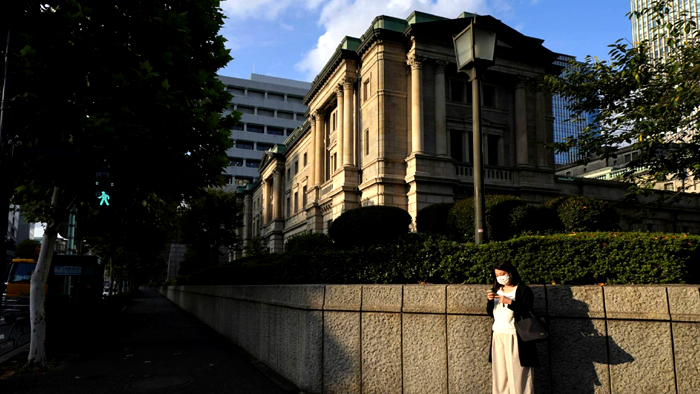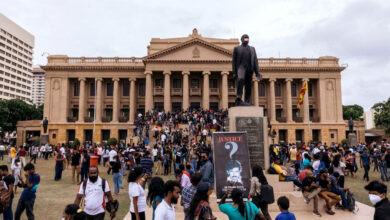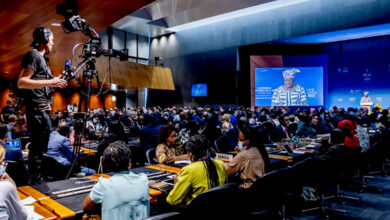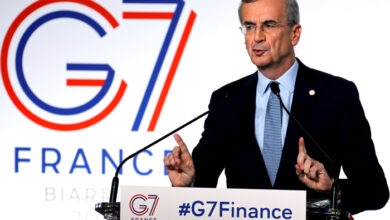The BOJ will keep rates very low and wait to act until the global picture is clearer.

The Bank of Japan is likely to keep its ultra-low interest rates and dovish guidance next week. This will show that it is determined to keep the stimulus in place until it is clear that the economy can handle a hit from slowing global growth.
The decision will come after the U.S. Federal Reserve raises interest rates again on Wednesday. It will also solidify the BOJ’s position as a dovish outlier in a world where many other central banks are tightening monetary policy to fight rising inflation.
Japan’s economy is just starting to recover from the effects of the coronavirus pandemic, so BOJ Governor Haruhiko Kuroda has said that policy needs to stay very loose.
Related: Japanese Yen Mixed Due to Dovish BoJ, Chinese Yuan Weighed Down by COVID Fears
At a two-day meeting that ends on Tuesday, December 20, the BOJ is expected to keep the short-term rate target at -0.1% and the 10-year bond yield cap at 0%. These are both parts of the BOJ’s yield curve control (YCC) policy.
Investors are looking to Kuroda’s briefing after the meeting for hints about how policy will change in the future. When Kuroda’s second five-year term ends in April, there is a lot of talk on the markets that the BOJ will change its policy.
“The BOJ probably won’t change its policy next week, but the markets will watch for any change in how the bank talks about the future of prices, since inflation may stay around its 2% target well into next year,” said Izuru Kato, chief economist at Totan Research.
“If the U.S. economy avoids a deep recession and Japan’s economy is in pretty good shape, the BOJ may remove its yield cap in June or July of next year,” he said.
Since inflation is higher than the target and there is a chance that wages will go up, BOJ officials are already dropping hints that the YCC might change next year.
Naoki Tamura, a member of the BOJ’s board, told the Asahi Daily that the BOJ should review its monetary policy framework and make changes to its huge stimulus programme after seeing how a round of wage talks goes next year. This shows that people are paying more attention to the downsides of long-term easy policy.
Three people who know how the central bank thinks say that some people there like the idea.
BOJ officials don’t rule out changing their policies next year, but sources say they aren’t in a hurry because they expect a slowdown in global growth to hurt exports.
They say that many people in the BOJ also like to look at the outcome of the wage talks, which are called “shunto,” to figure out how quickly the central bank can stop giving out stimulus. Around March, the shunto talks will take place between big companies and unions.
“If wage growth turns out to be strong, the BOJ will then figure out if that strength can be maintained,” said one of the sources, echoing what two others said.
CONTENT WITH STATUS QUO
The BOJ is happy to keep things the same for now, sources said, because it’s hard to predict what will happen in the world and how fast wages will rise in Japan.
Core consumer prices in Japan were 3.6% higher in October than they were a year earlier. This was the seventh straight month that inflation was higher than the BOJ’s target, and it was caused by rising prices for fuel and raw materials.
The BOJ thinks that cost pressure will go away next year, which will cause the inflation rate to drop below its target.
Related: The BOJ keeps interest rates very low and goes against a global trend toward tightening.
But some analysts think that core consumer inflation will go above 4% in the coming months and stay around 2% for most of next year as companies continue to pass on rising costs to households.
In a survey done in November by Teikoku Databank, big food and drink companies said they planned to raise prices on more than 4,000 items next year, with most of the price hikes happening in February.
Policymakers hope that wages will rise enough next year to make up for the rise in living costs, which would help turn cost-push inflation into demand-driven inflation.
Analysts say there will be no chance for the BOJ to change its policy if the Fed can’t bring down inflation without sending the U.S. economy into a deep recession.
Yoshiki Shinke, the head economist at the Dai-ichi Life Research Institute in Tokyo, said, “There is a chance that Japan’s inflation could keep rising for longer than expected next year.”
“But if the world economy is in bad shape, it might be hard for the BOJ to stop giving out stimulus,” he said.





